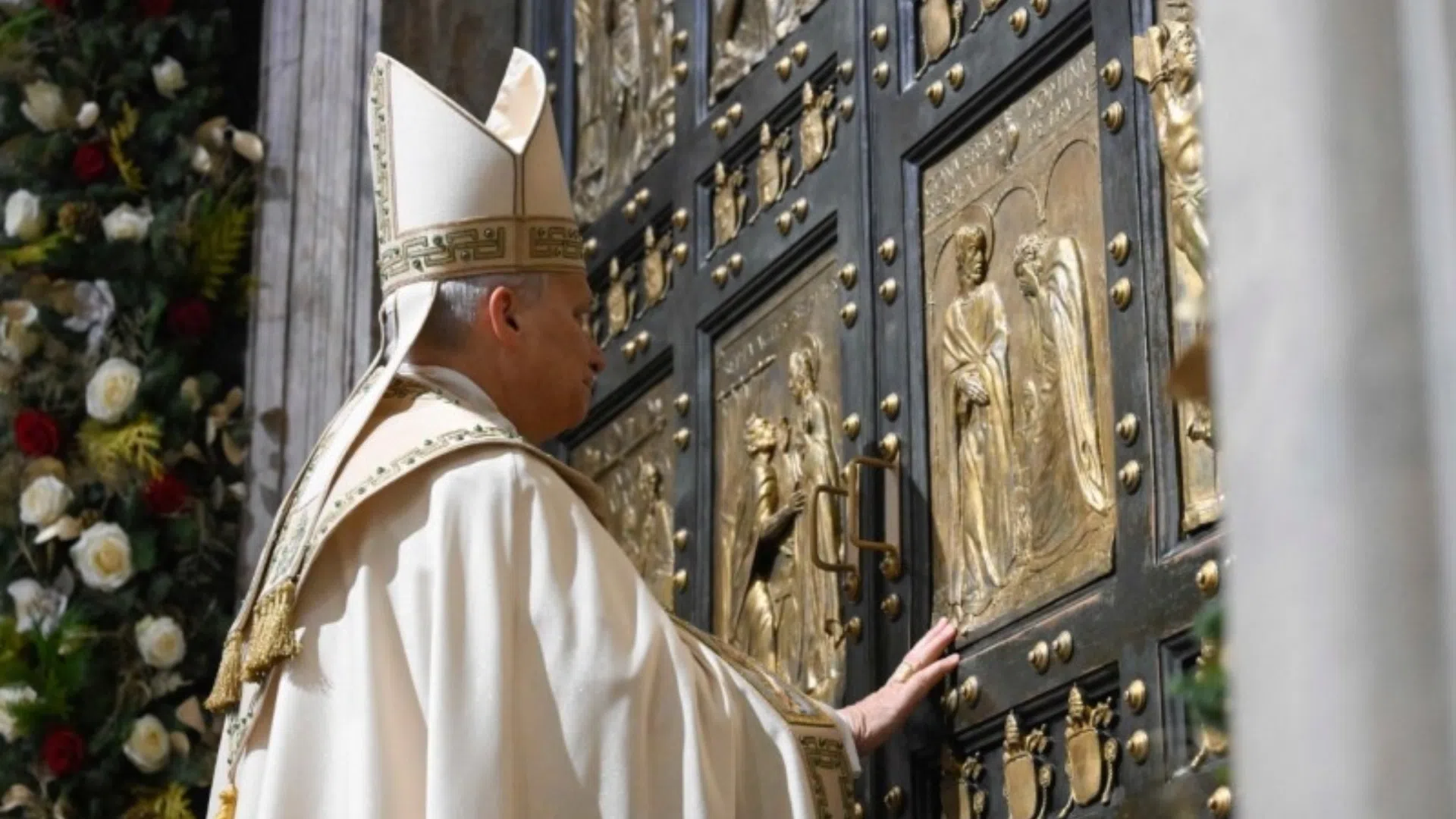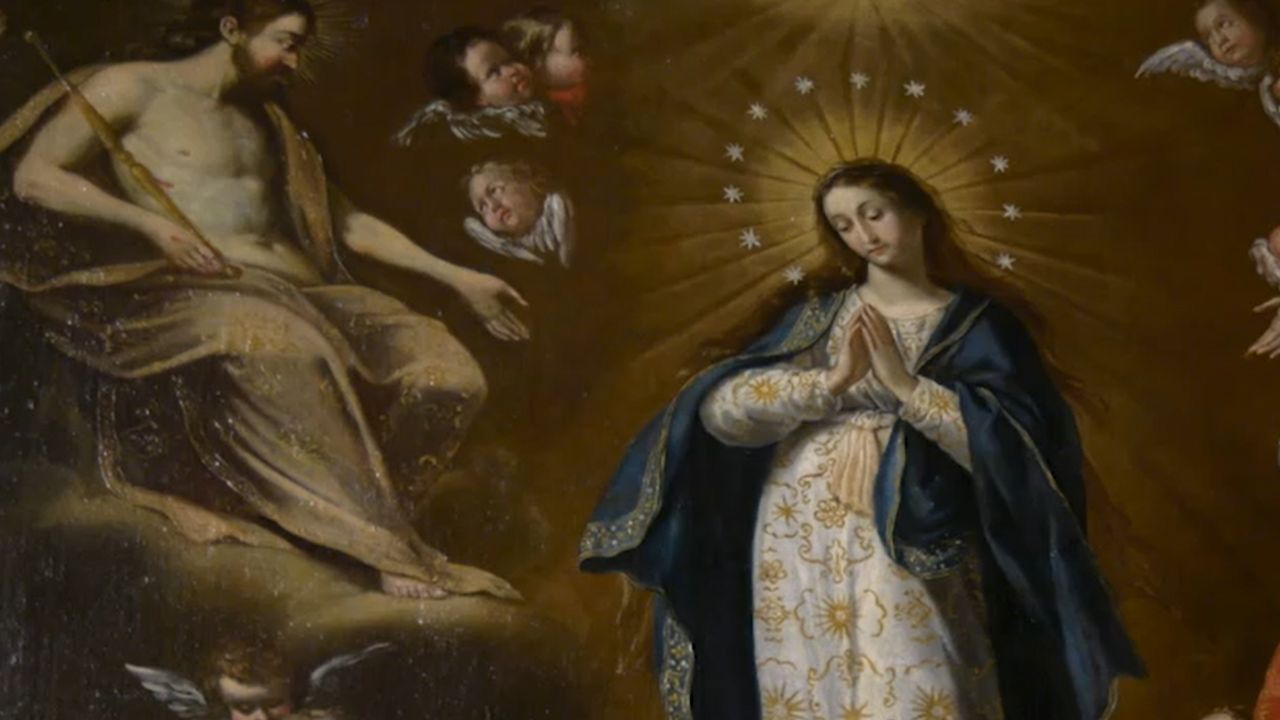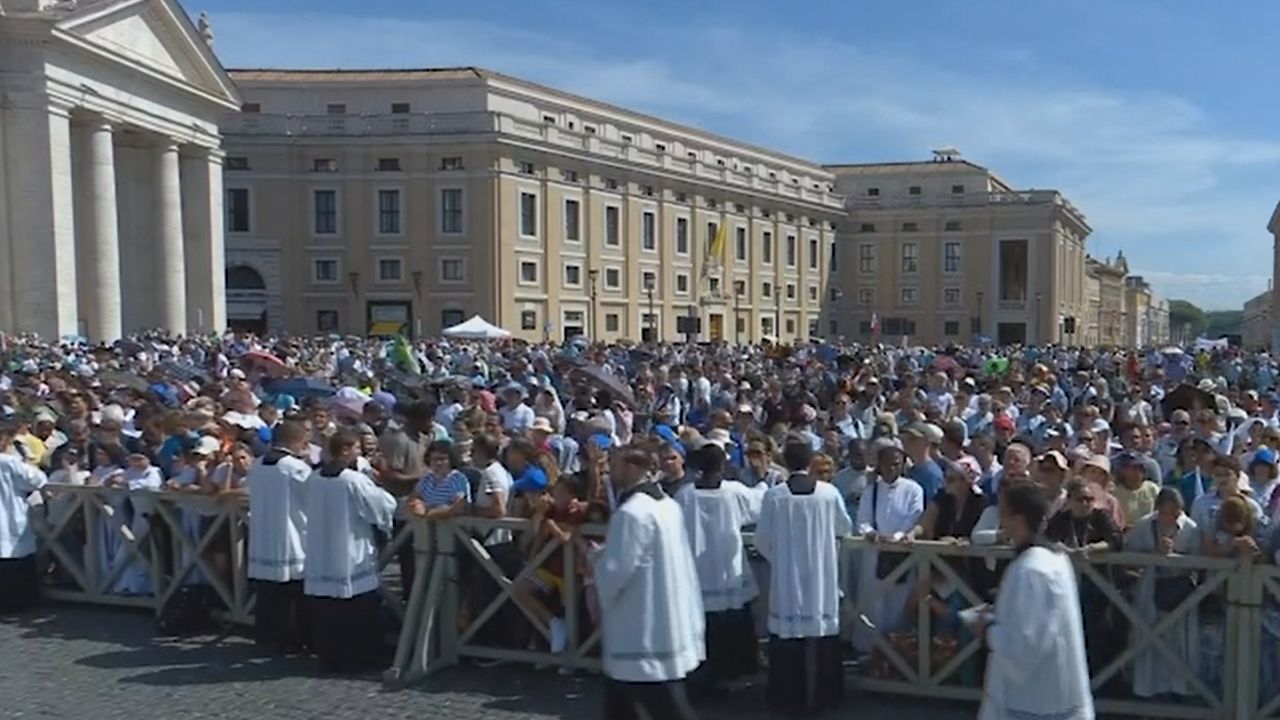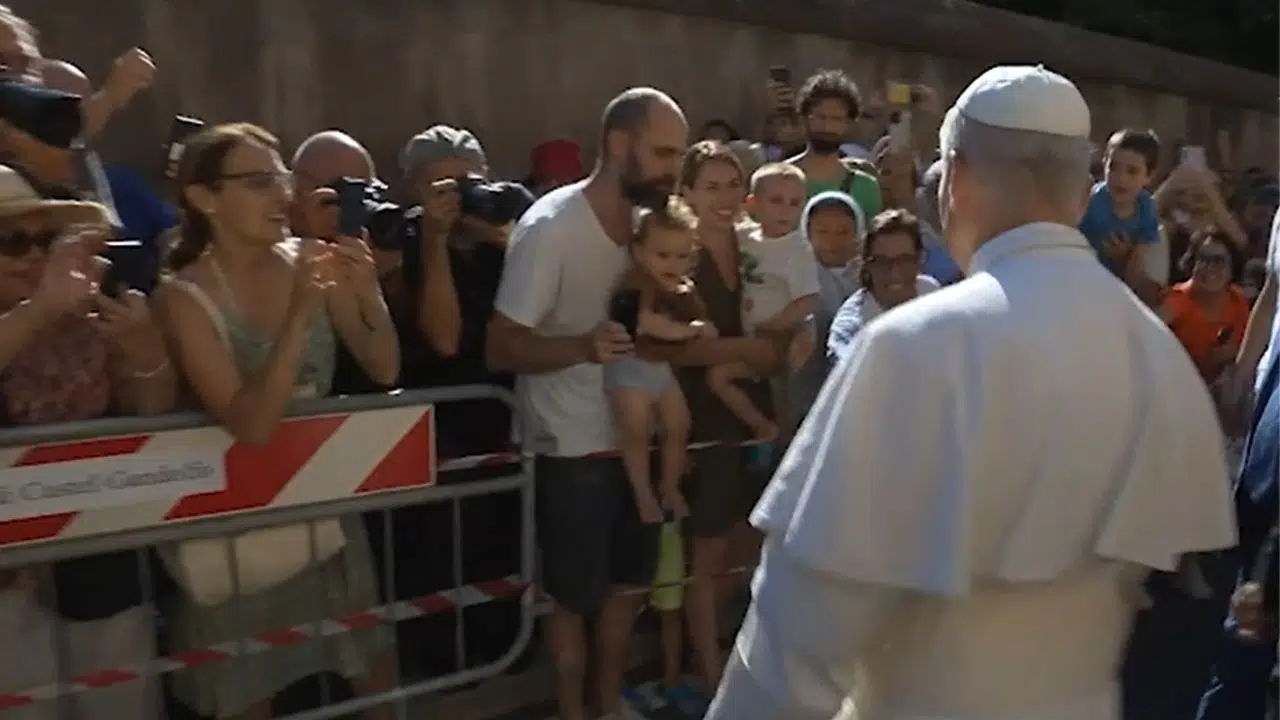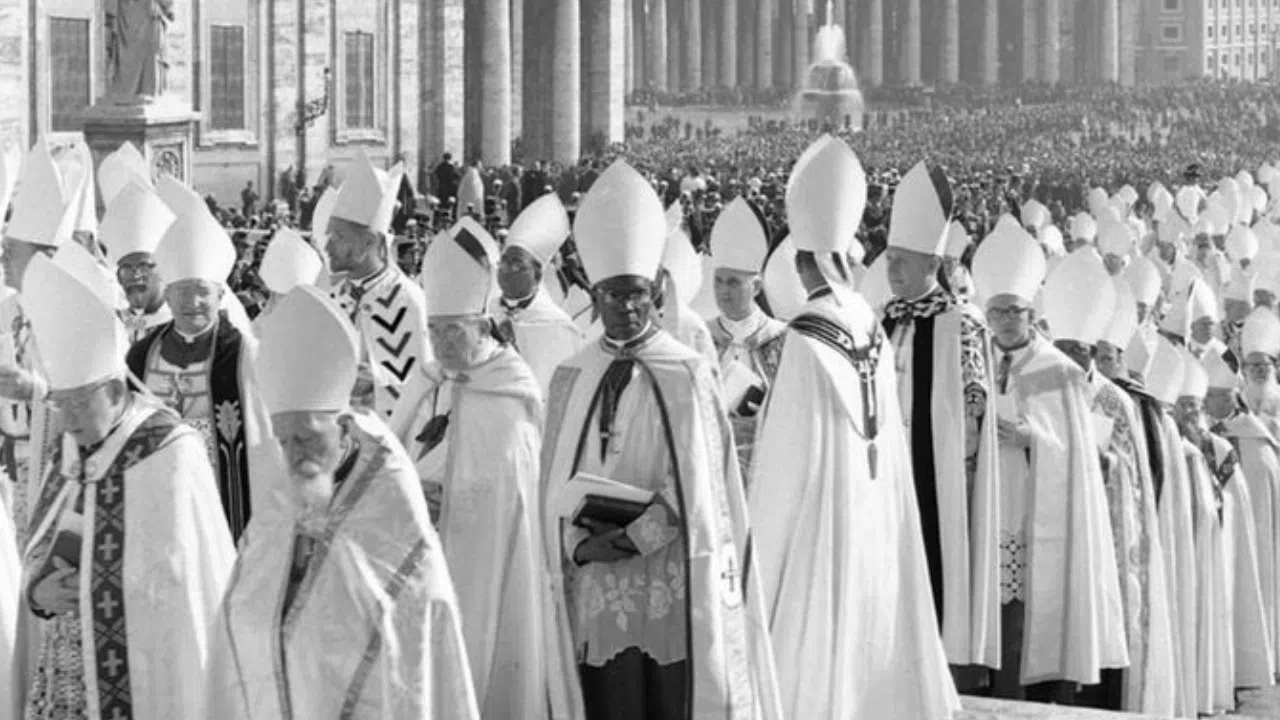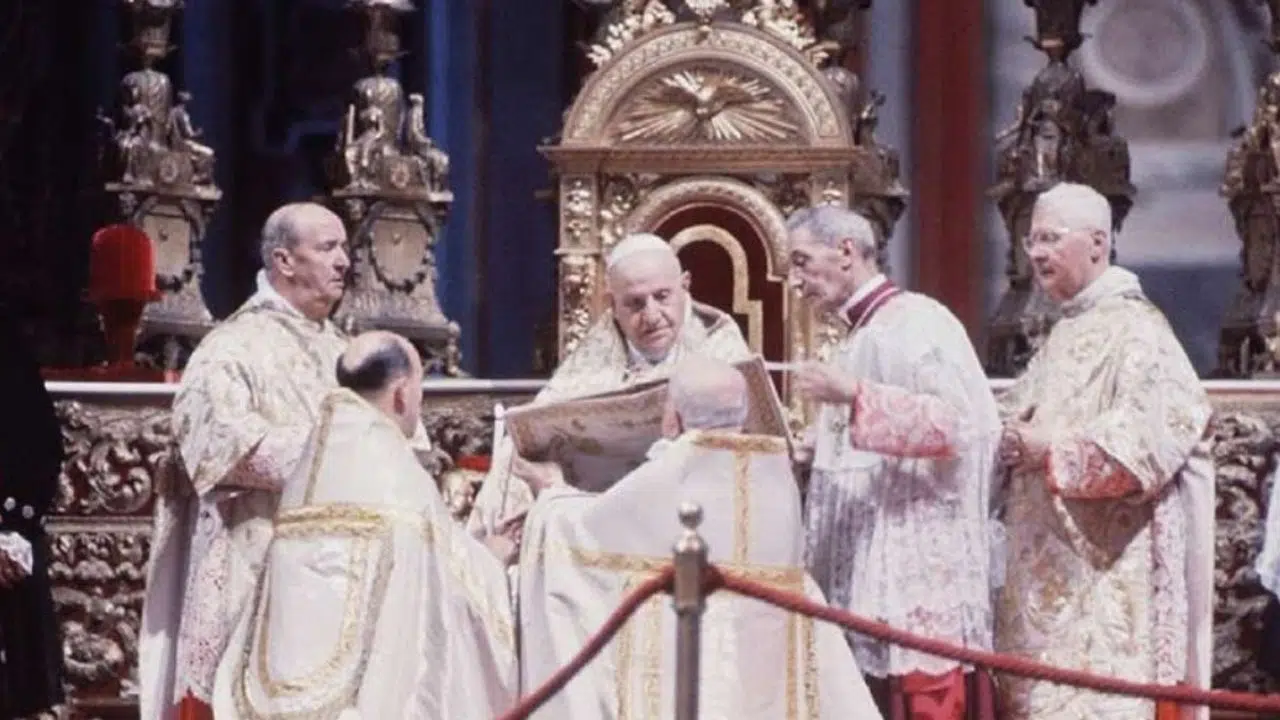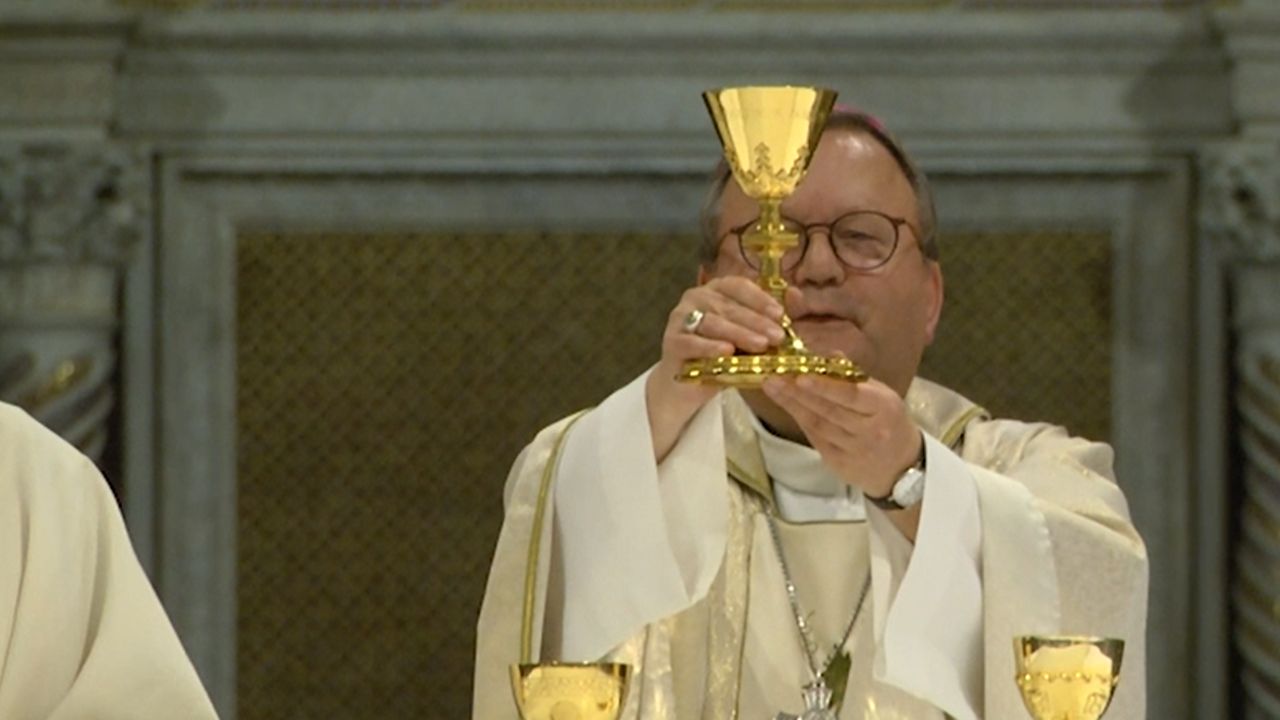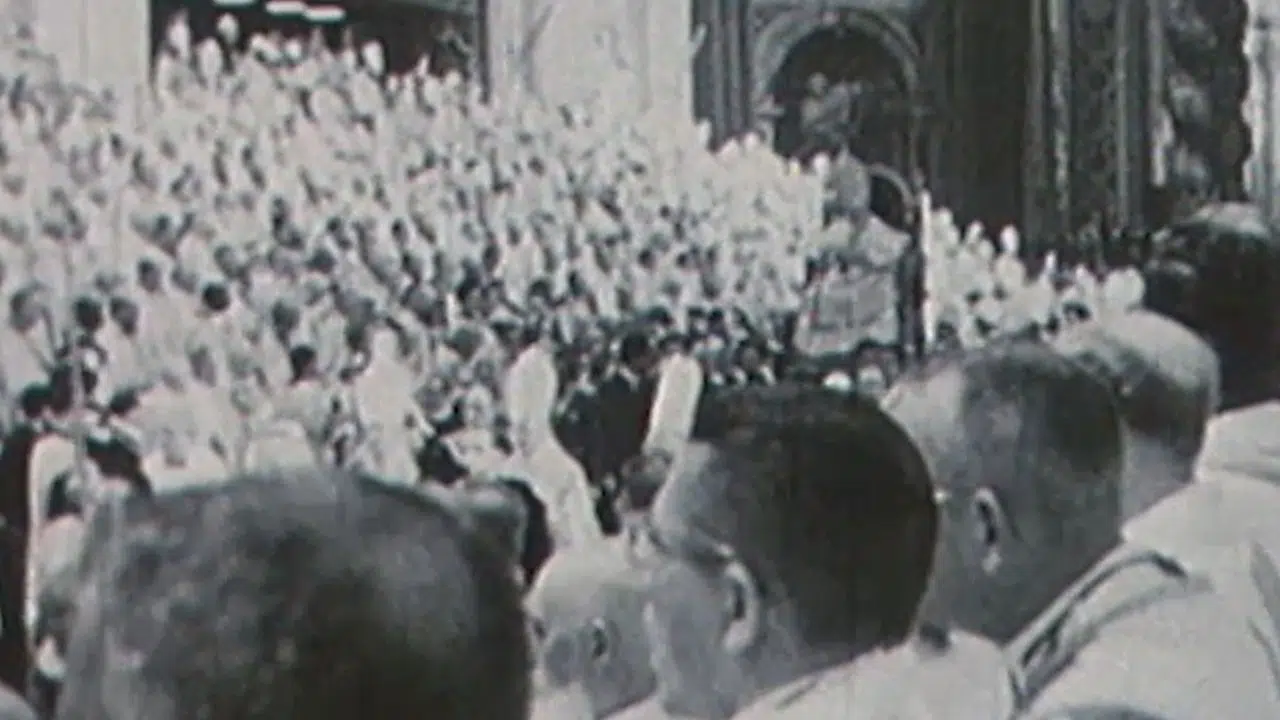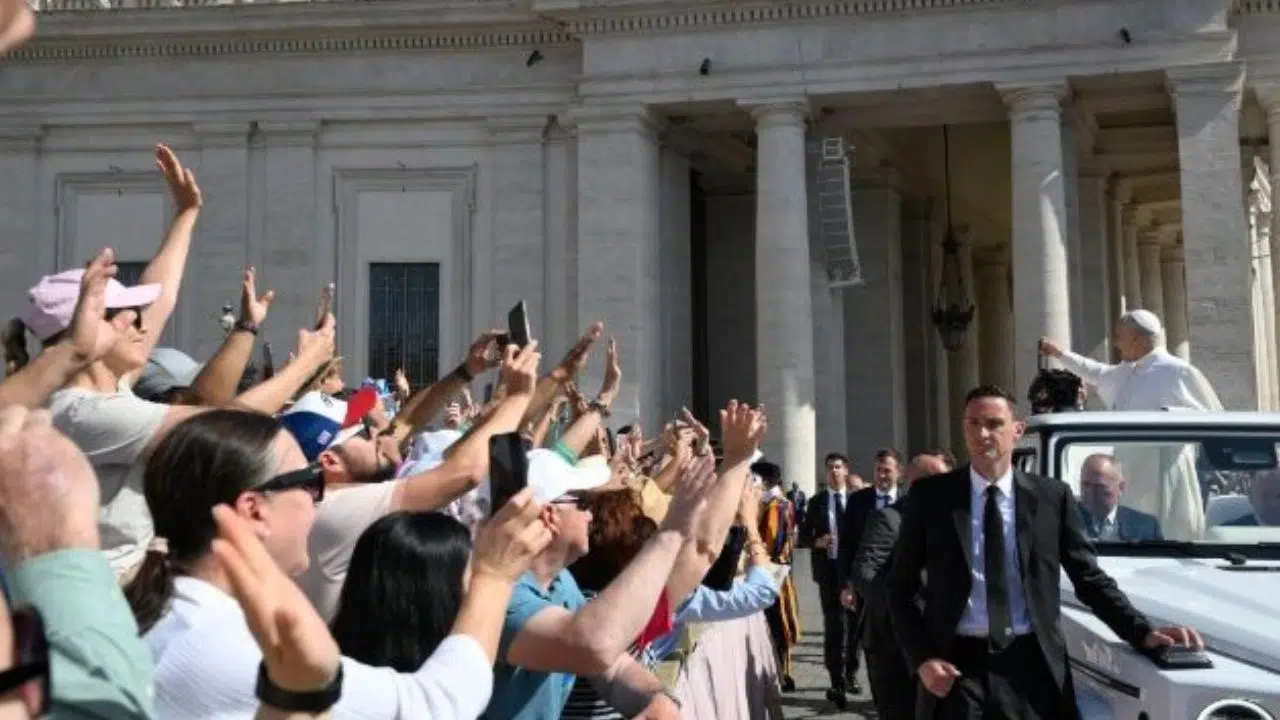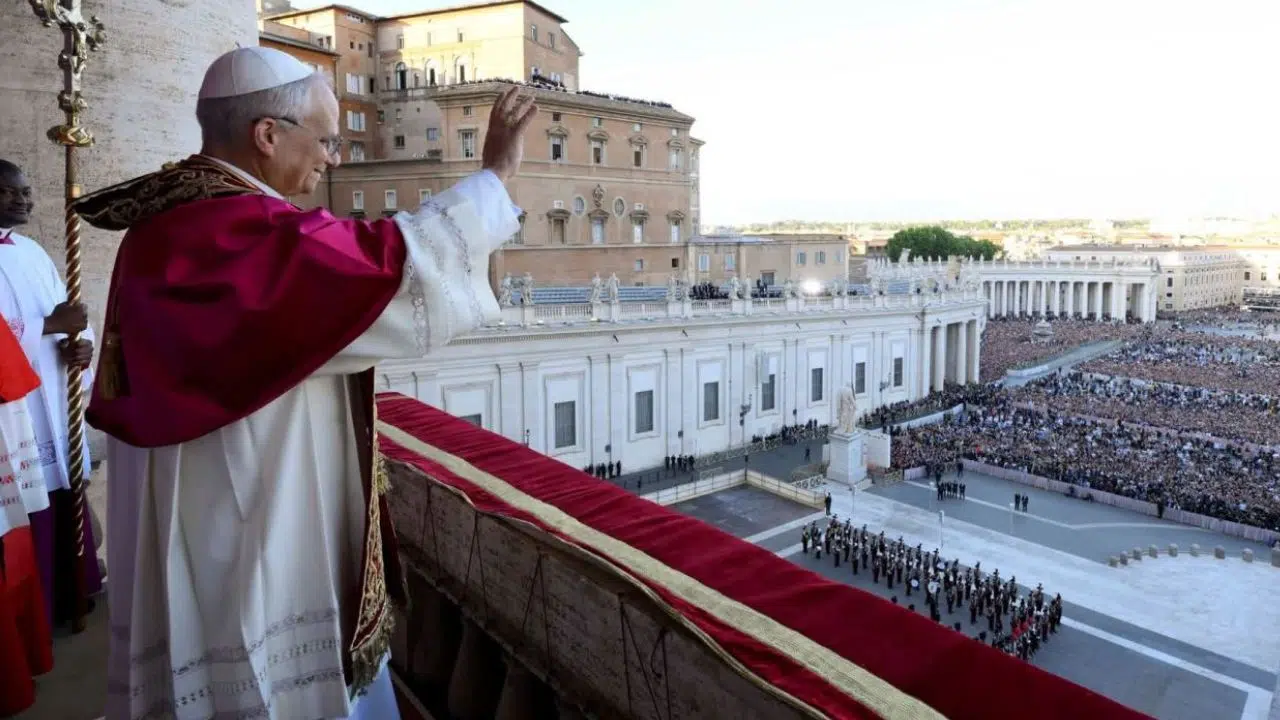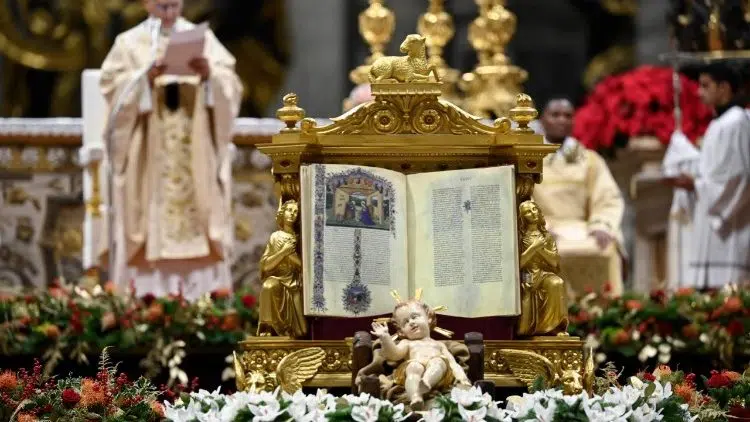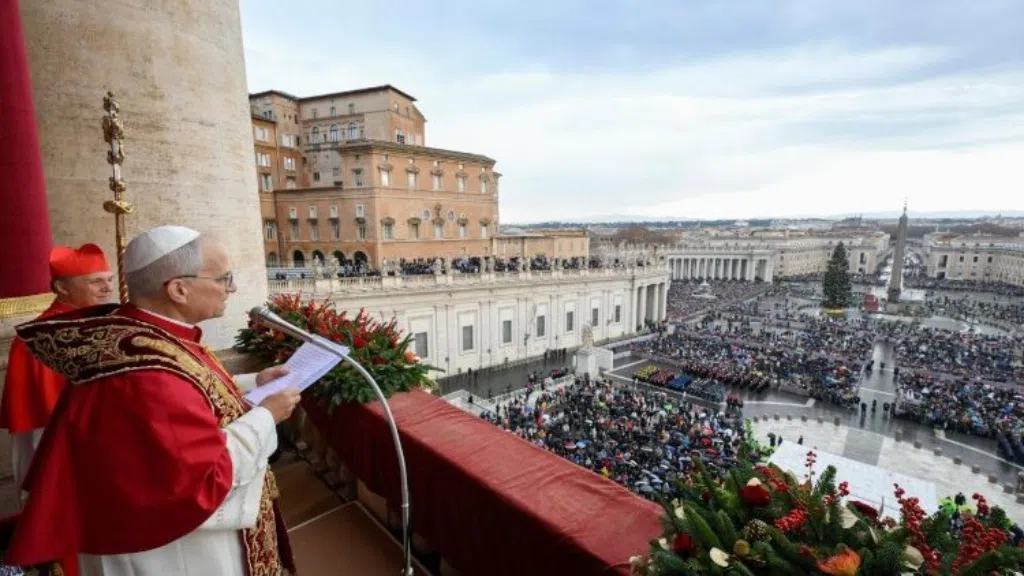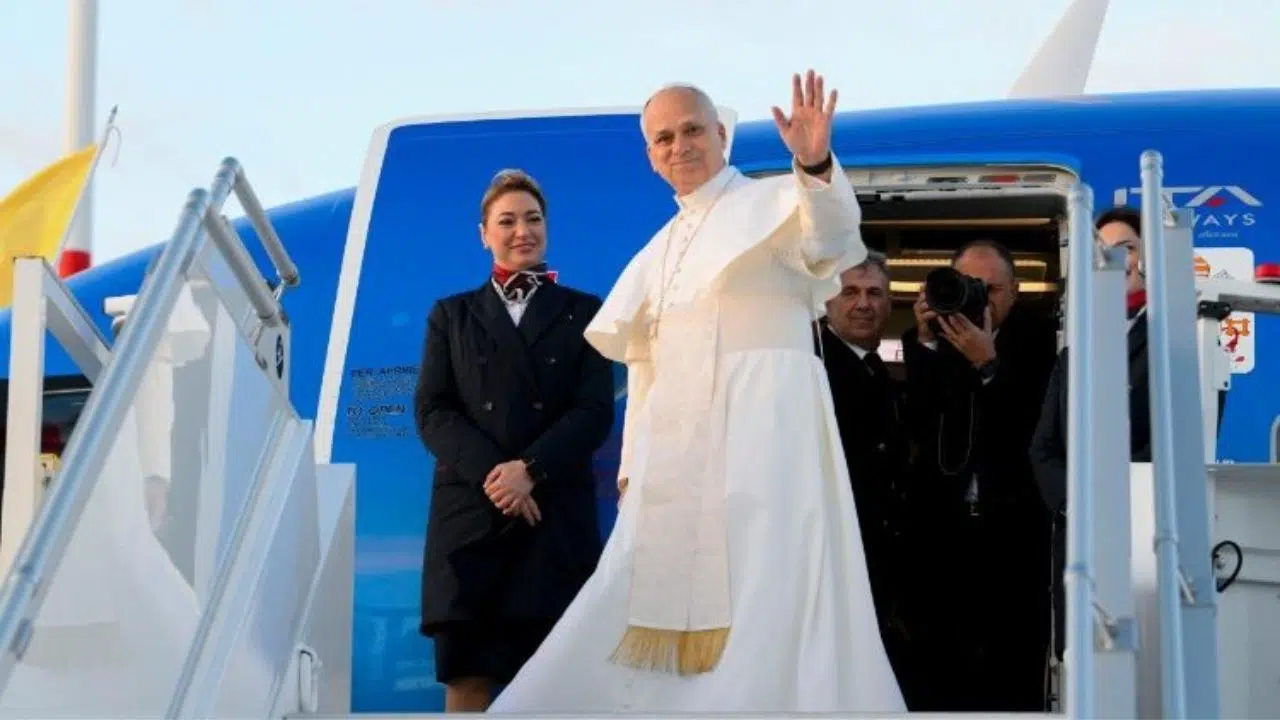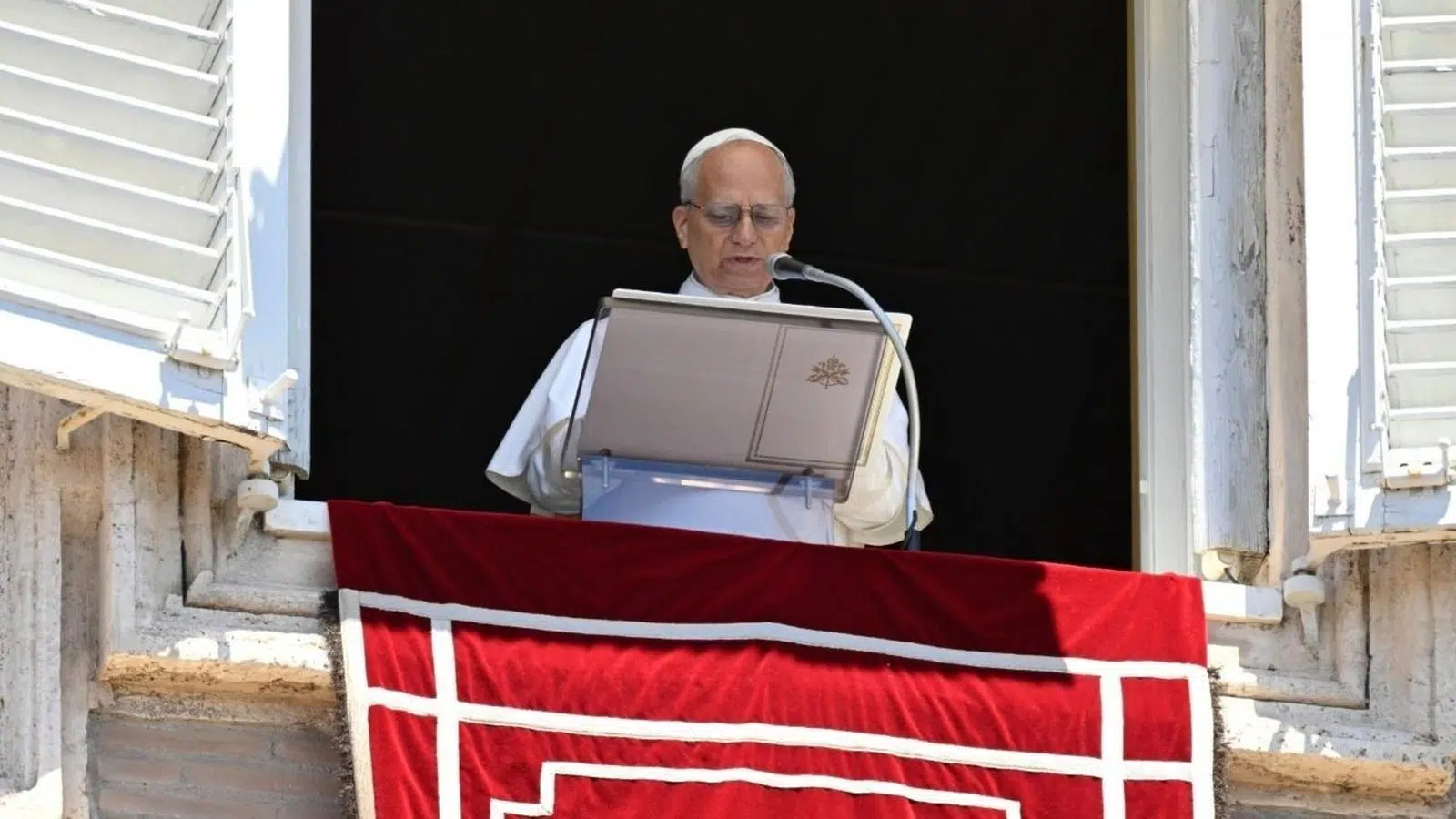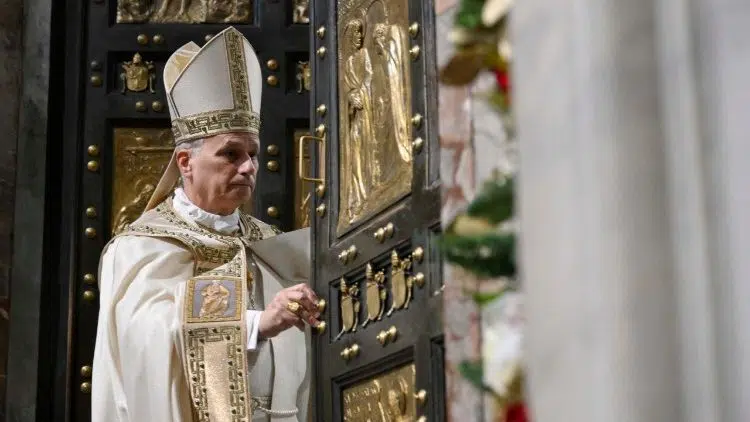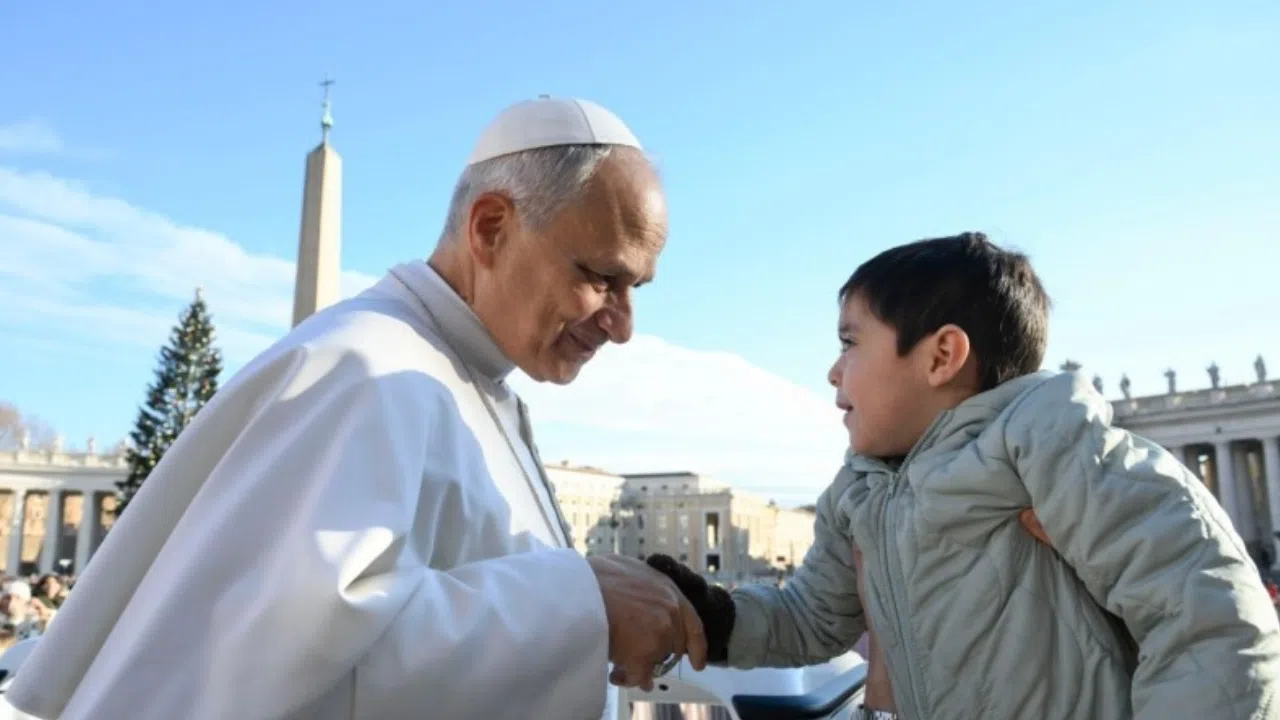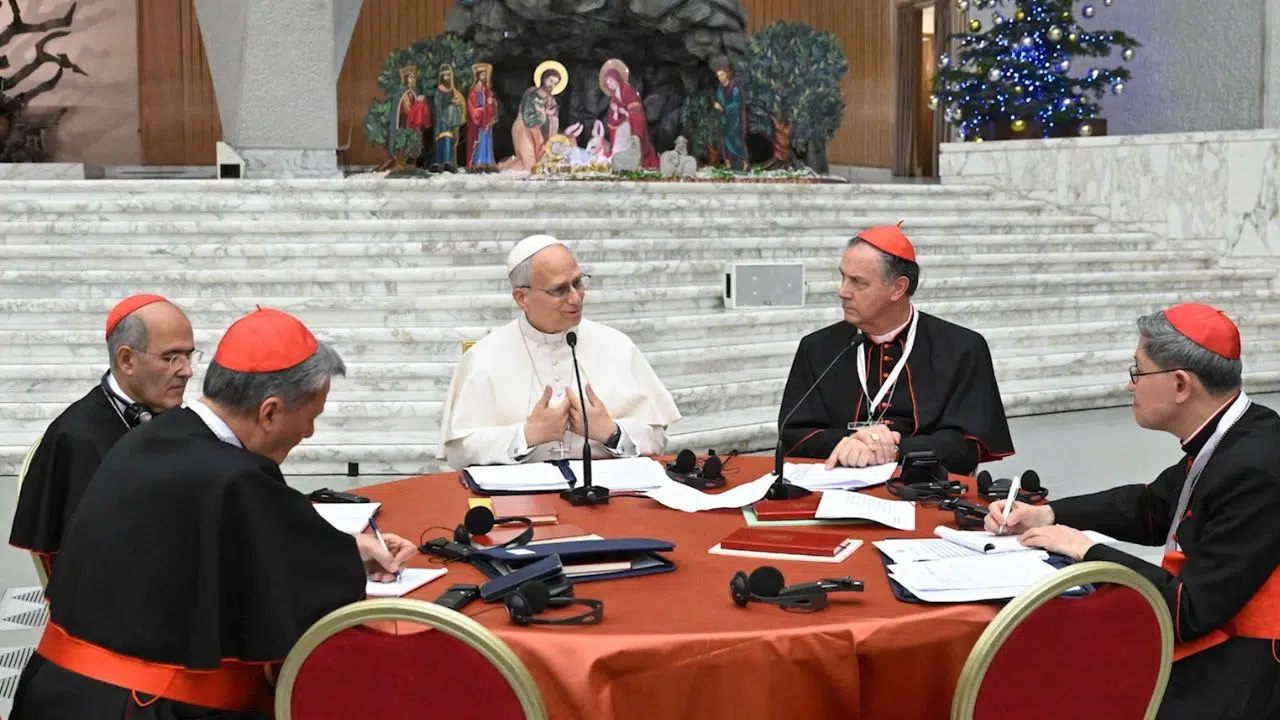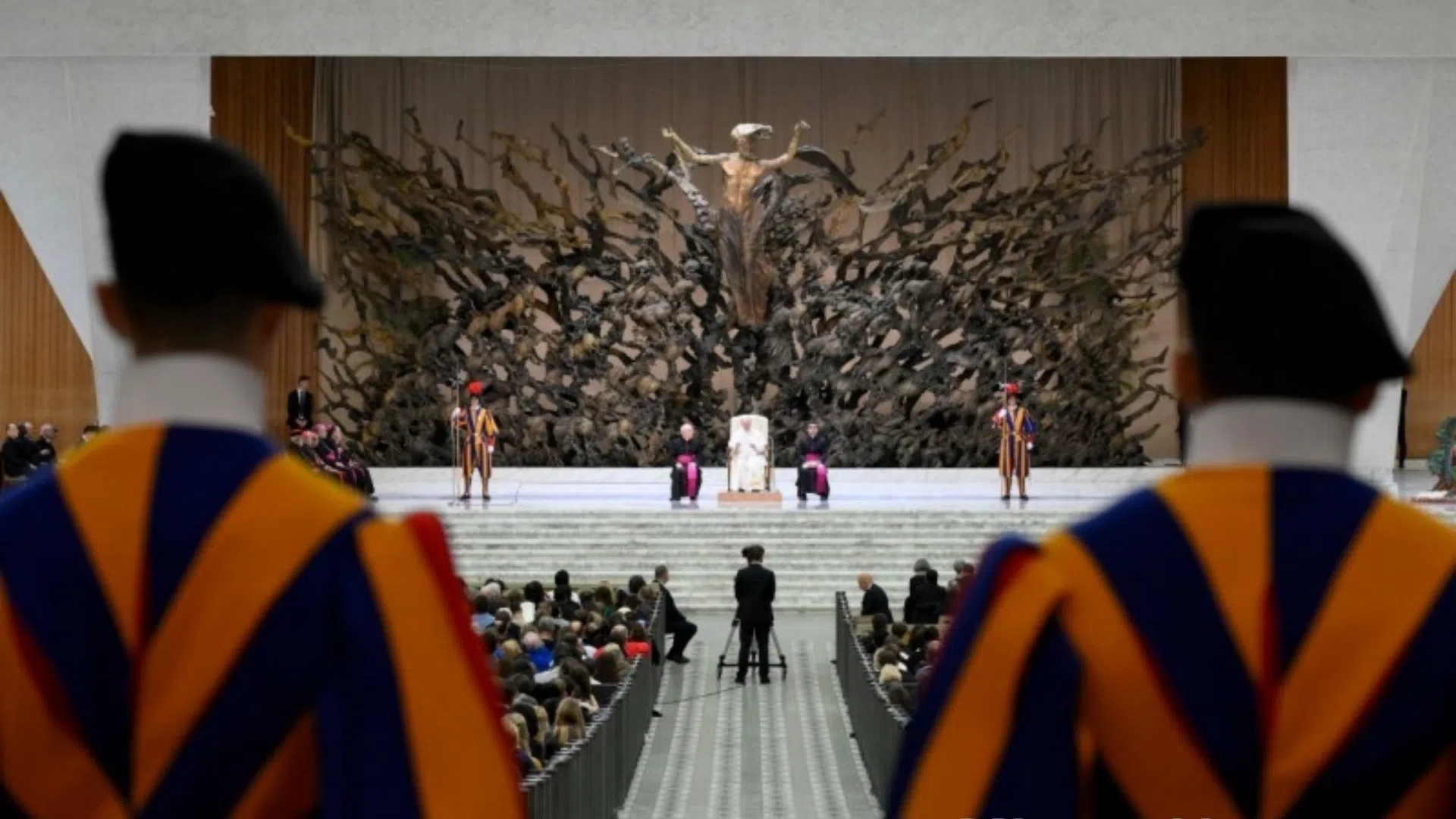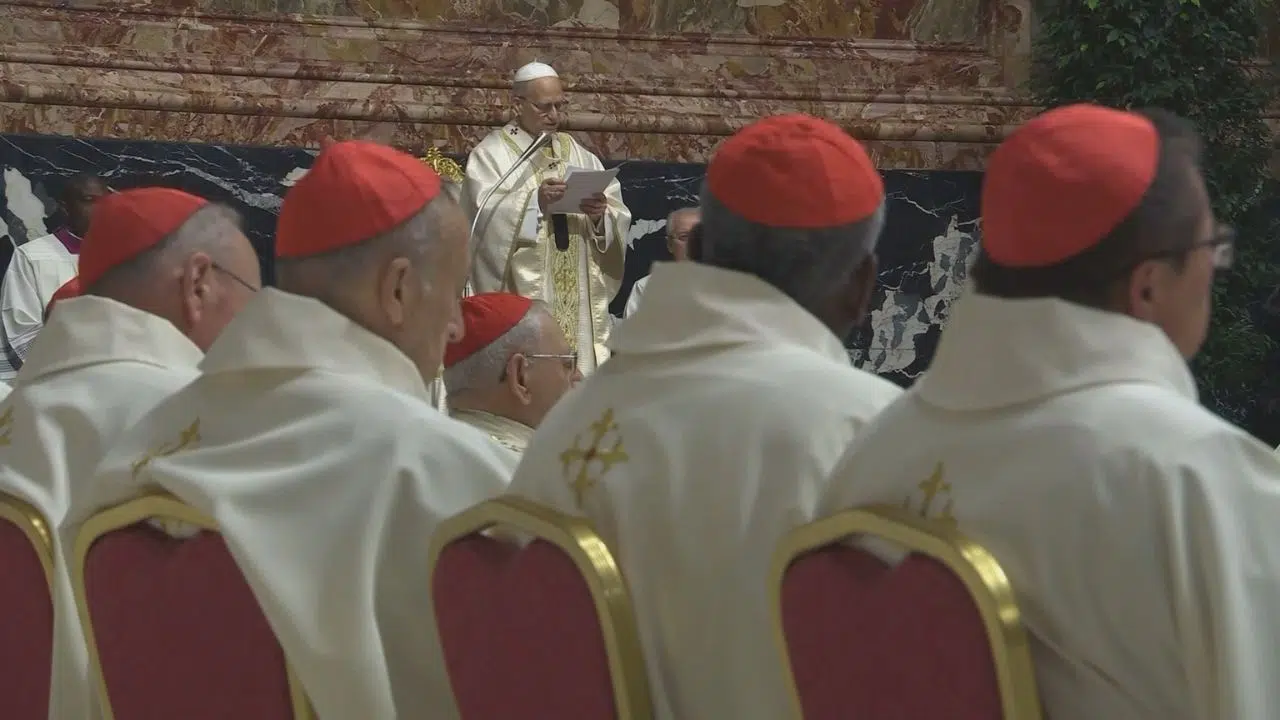During a press conference held aboard the papal plane, Pope Francis said he promised the president of Hungary that he would spend more time in the country.
He also addressed tensions in the European Union. Hungary has repeatedly been at odds with the EU on issues such as gender ideology.
POPE FRANCIS
'We must search for the roots of Europe and develop them. All countries must do this. And I see that some interests, maybe not European, seek to use the European Union to spread their ideas, and this should not happen.'
The Pope spoke in detail to explain his opinion on same-sex marriage.
POPE FRANCIS
'I spoke clearly about this. Marriage is a sacrament. Marriage is a sacrament and the Church does not have the authority to change the sacrament. That's how the Lord instituted it. These laws are trying to improve the situation of many people of different sexual orientation. It is very important to help these people but without imposing things that, by their nature, are not part of Church teaching. But if they want to live a life together, a homosexual couple, states have the civil possibility to support them, to give them security in inheritance, in health.'
In many ways, Pope Francis's trip was marked by the pandemic, and the subject of vaccines rose once again. In Slovakia, only few unvaccinated people were allowed to participate in major events. The Pope was asked if this was a form of discrimination.
POPE FRANCIS
'Many arguments have led to this division. Even in the College of Cardinals there are some vaccine deniers, and one of them, the poor guy, is hospitalized with the virus but...the ironies of life.'
The Pope then clarified the nature of his meeting with members of the Hungarian government. He said the meeting did not primarily take place with Hungary's prime minister, Viktor Orbán, but with the President, János Áder, and that the two spoke about the environment. Pope Francis also asked him about Hungary's efforts to increase fertility rates.
POPE FRANCIS
'Nothing on migration. We didn't talk about that. Then we returned to ecology. Yes...the family in the sense in which I was asking. And it's clear that there are many young people, many children. In Slovakia too. I was shocked.'
The Pope spoke extensively about political leaders. He was asked for his opinion on the issue of whether or not President Joe Biden should be allowed to receive communion.
POPE FRANCIS
'For me, I don't want to go into specifics, because you're talking about the United States, but I'm not fully familiar with all the details. I'll give a broad principle. You can say to me, 'But if you are a (pastor) who is close to the people, kind, and you show compassion for a person, would you give that person communion?' This is a hypothesis, no? Be a pastor. And a pastor knows what he should do in every situation. But as a pastor, if he moves away from the Church's pastoral approach, then he immediately becomes a politician.'
The Pope concluded the press conference by acknowledging the work of one journalist in particular who was on the papal plane.
POPE FRANCIS
'They say this journalist is available 24 hours a day for work, and that she always lets others go first and allows others to speak while she listens. It's nice, no? To hear those things about a journalist. And this is what Manuel (José) Beltrán says about our Eva Fernández.'
Eva Fernández is a correspondent for COPE radio. She did the heavy-lifting to organize her radio station's interview with the Pope in early September.
The Pope was full of energy despite the intensity of the trip. On the first day, he took off from Rome at 6 a.m., celebrated Mass, gave several addresses and traveled to two countries.
He only appeared physically tired on one of the first days, when he joked that he would remain seated for one of his speeches because he is no longer 15 years old. In fact, Pope Francis will be 85 in December.
Javier Romero
TR: CT
